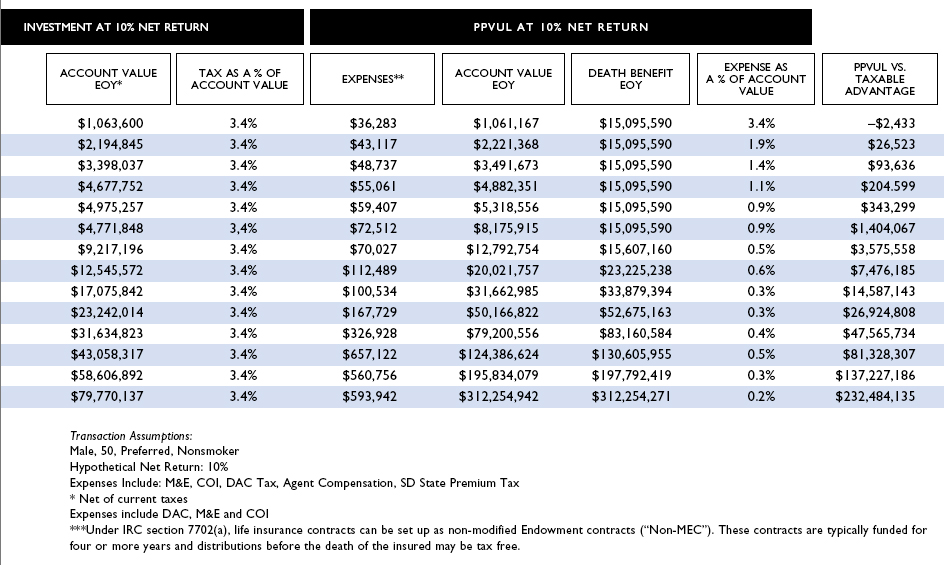
Offshore carriers generally are more flexible in allowing policy owners to select a particular manager or IDF than a domestic carrier. Domestic carriers may restrict investments to certain approved managers and funds, and the addition of funds or managers to their investment platforms may require considerable time and expense, or may even require a minimum investment size that exceeds the investment the policyholder has in mind. In many cases, states may restrict an insurance company from specific kinds of investments and liquidity restraints. Domestic carriers may also be unable to invest in offshore funds that are only available to non-U.S. investors. There are also cost differentials that may favor offshore carriers that only write private placement business. Their infrastructure costs and capital requirements are very different from multi-line carriers that are subject to many regulatory restrictions.
The important point, however, is that private placement policies written by foreign carriers receive exactly the same tax treatment as policies written by domestic carriers. If the policy complies with the rules of the Internal Revenue Code, it receives the same benefits whether issued by a domestic or foreign carrier. It should be noted that foreign life insurance carriers typically reinsure virtually all the life insurance risk with major U.S. or international insurance companies-hence, there is no significant credit risk inherent in establishing a life policy or annuity with a smaller foreign carrier that specializes in custom variable insurance and annuity products.
There are also certain non-tax advantages that can be derived through ownership of investments through an insurance/annuity vehicle. Many individuals have sought to secure greater protection for their assets through offshore, asset protection trusts. While the law varies from state to state, in most jurisdictions, assets owned in a variable life insurance or annuity contract are not subject to the claims of creditors (whether or not the policy is owned directly or through an onshore or offshore trust). The foreign jurisdictions where such insurance carriers are located likewise protect policyholders from creditor actions.
Finally, it should be noted that people who own a private placement policy issued by a foreign carrier must comply with U.S. information reporting rules applicable to the reporting of foreign bank and financial accounts (known as the FBAR rules) and with the Foreign Account Tax Compliance Act (FACTA).
Michael C. Crawford, CFP, CLU, ChFC, is managing member of Nationwide Wealth Management LLC (www.nationwidewealthmgmt.com), which provides traditional and non-traditional insurance services for high-net-worth and ultra-high-net-worth clients.
Perry Lerner, Esq., earned his law degree at Harvard Law School and is the managing director of Crown World Services (1-888-399-5169), which provides unique life insurance policies for high-net-worth individuals.








